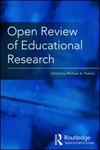Critical Thinking Activities and the Enhancement of Ethical Awareness: An application of a ‘Rhetoric of Disruption’ to the undergraduate general education classroom
Q1 Arts and Humanities
引用次数: 2
Abstract
Abstract This article explores how critical thinking activities and assignments can function to enhance students’ ethical awareness and sense of civic responsibility. Employing Levinas's Other-centered theory of ethics, Burke's notion of ‘the paradox of substance’, and Murray's concept of ‘a rhetoric of disruption’, this article explores the nature of critical thinking activities designed to have students question their (often taken-for-granted) moral assumptions and interrogate their (often unexamined) moral identities. This article argues that such critical thinking activities can trigger a metacognitive destabilization of subjectivity, understood as a dialectical prerequisite (along with exposure to otherness) for increased ethical awareness. This theoretical model is illustrated through a discussion of three sample classroom activities designed to destabilize moral assumptions and identity, thereby clearing the way for a heightened acknowledgment of otherness. In so doing, this article provides an alternative (and dialectically inverted) strategy for addressing one of the central goals of many General Education curricula: the development of ethical awareness and civic responsibility. Rather than introducing students to alternative perspectives and divergent cultures with the expectation that heightened moral awareness will follow, this article suggests classroom activities and course assignments aimed at disrupting moral subjectivity and creating an opening in which otherness can be more fully acknowledged and the diversity of our world more fully appreciated.批判性思维活动与道德意识的增强:“颠覆修辞”在本科通识教育课堂中的应用
摘要本文探讨批判性思维活动和作业如何增强学生的伦理意识和公民责任感。本文采用列维纳斯的“他者中心”伦理学理论、伯克的“物质悖论”概念和默里的“破坏修辞”概念,探讨了批判性思维活动的本质,这些活动旨在让学生质疑他们(通常被视为理所当然的)道德假设,并质疑他们(通常未经检验的)道德身份。本文认为,这种批判性思维活动可以引发主体性的元认知不稳定,这被理解为提高伦理意识的辩证先决条件(以及暴露于他者)。这一理论模型是通过对三个课堂活动样本的讨论来说明的,这些活动旨在破坏道德假设和身份的稳定,从而为高度承认他者性扫清道路。通过这样做,本文为解决许多通识教育课程的中心目标之一提供了另一种(和辩证颠倒的)策略:道德意识和公民责任的发展。与其向学生介绍不同的观点和不同的文化,期望随之而来的是更高的道德意识,本文建议课堂活动和课程作业旨在破坏道德主体性,创造一个更充分承认差异性和更充分欣赏我们世界多样性的开放环境。
本文章由计算机程序翻译,如有差异,请以英文原文为准。
求助全文
约1分钟内获得全文
求助全文
来源期刊

Open Review of Educational Research
EDUCATION & EDUCATIONAL RESEARCH-
CiteScore
2.60
自引率
0.00%
发文量
0
审稿时长
22 weeks
 求助内容:
求助内容: 应助结果提醒方式:
应助结果提醒方式:


